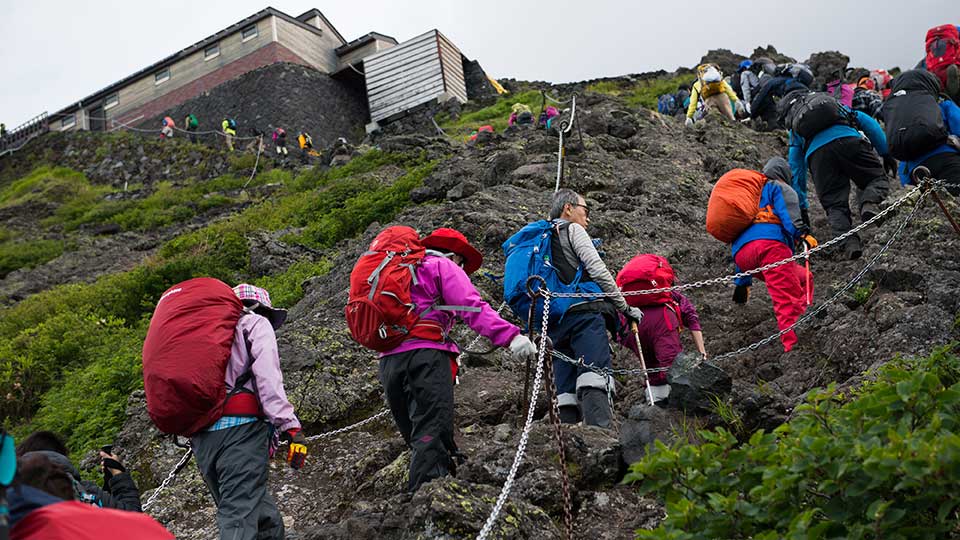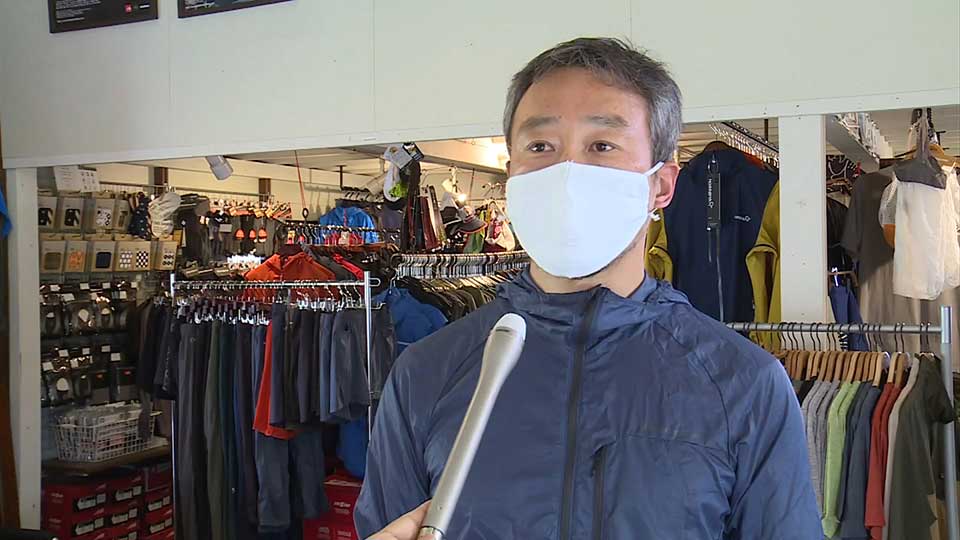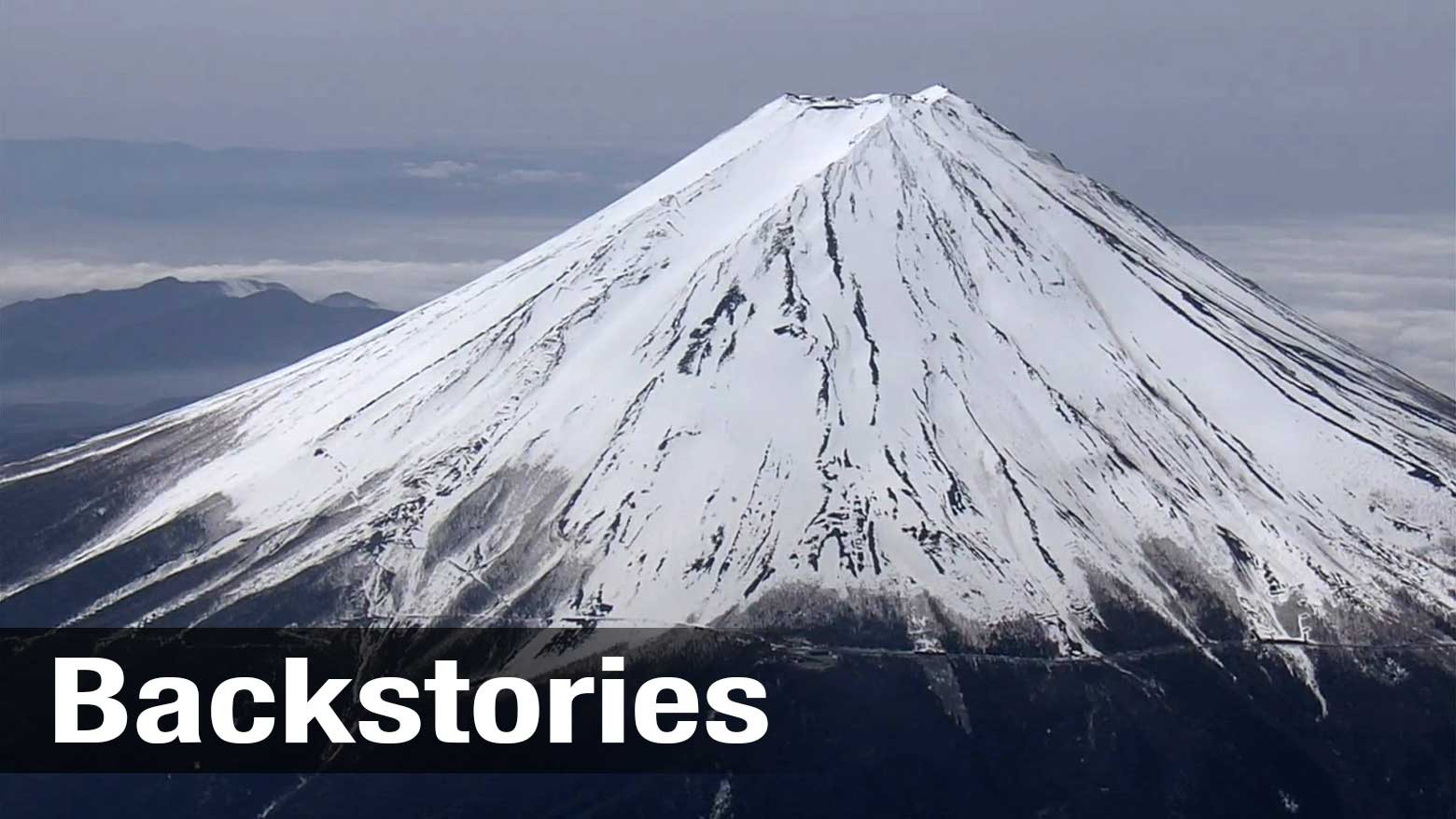The state of emergency in Shizuoka and Yamanashi prefectures, where Mt. Fuji is located, was lifted on May 14th. However, Shizuoka officials, who administer the three trails leading up to the peak, announced on May 18th that the mountain will remain closed throughout the summer. Yamanashi, which manages a separate trail, had announced a similar decision earlier in the month. These measures came on the back of announcements by managers of first aid centers and owners of mountain huts that they would be closed for the season.
“People will have to enjoy looking up at Mt. Fuji and taking photos and writing poems about it instead,” said Shizuoka Governor Kawakatsu Heita.
Nankai Yakusokan, in Gotemba City at the foot of Mt. Fuji, is usually brimming with visitors at the start of summer. But this year, business has been slow, with only the occasional business traveler. Manager Arai Yasushi estimates summer sales will be about half that of an average year’s.
“Closing the trail is a big blow for hotel and accommodation operators like us,” he says. “All our reservations have been cancelled. There will be no climbers so we’ll just have to take as many business customers as we can."

Mt. Fuji’s climbing season typically lasts from July through August. During these two months, trails are crowded and mountain huts are packed, with people sleeping close to each other on the floor. Congestion is especially bad early in the morning, as climbers rush toward the summit to take in the sunrise. A survey conducted by Yamanashi and Shizuoka prefectures found that foot traffic on Mt. Fuji peaks between 3 AM and 4:30 AM on weekends and over the Obon summer holiday. Such conditions are perfect for spreading the virus.
After claiming cherry blossom season this spring, the coronavirus outbreak is now putting a premature end to summer climbing at Japan’s most iconic mountain. But most people agree that one year without Mt. Fuji is a small price to pay as part of efforts against a virus that has already sickened tens of thousands across the country.

“The mountain isn’t going anywhere,” says Ashikawa Masaya, who runs a mountaineering goods store in Shizuoka. “We have to wait until it’s safe and we can climb without worrying about the virus.”

